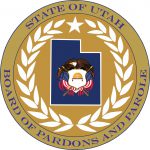Utah Board of Pardons & Parole
Victims and Offender Parole
Parole is a conditional release from prison to supervision in the community before final expiration of sentence. A parole agent is assigned to the offender by the Department of Corrections. The offender must follow the conditions of parole to remain in the community.
Prior to an individual’s release onto parole, the Board will set conditions designed to help the offender in overcoming factors contributing to their criminal behavior and to provide protection to the victim and the public. These factors may include inpatient drug and alcohol therapy, sex offender or mental health therapy, completion of a halfway house program, a “no alcohol” condition, intensive supervision Parole (ISP), electronic monitoring (EM), restitution, or any other conditions the Board deems appropriate. Also, the Utah Department of Corrections maintains a Sex Offender Registry for parolees convicted of a sex offense.
If the victim has particular safety concerns, the Board may order a “no contact” clause to be made part of an offender’s special conditions of parole. A written request from the victim outlining specific fears and concerns and the need for a “no contact” clause should be submitted to the Board in writing. This request can be made any time before the parole hearing or during the offender’s parole.
If the victim has received any threats from the offender or feels that harassment is occurring, the victim should contact the appropriate person as follows:
- If the offender is incarcerated, the victim may file a complaint with the offender’s prison caseworker
- If the offender is on parole, the victim may file a complaint with the parole agent with the Department of Corrections or with the Board of Pardons and Parole.
The Board is concerned about such behavior. Harassment or threatening behavior by an offender may result in a longer period of incarceration or a violation of parole

